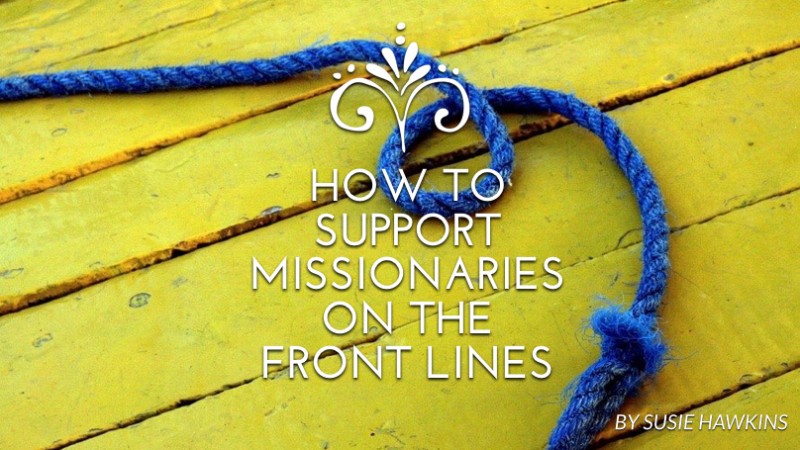One of Christianity’s most compelling mission stories is that of William Carey, called “the father of the modern missionary movement.” In 1792, William Carey, a poor English shoemaker, felt God’s call to take the gospel to the unreached in India. The mission society of his church appointed him to go, providing the funds for his travel with his mission partner, John Thomas. As the men in his prayer group prayed over him, Carey used the analogy of exploring a mine. He reportedly said, “Well, I will go down, if you will hold the rope.” Andrew Fuller, who was part of that prayer meeting, later explained how the other men in that prayer meeting committed to partner with Carey and “never let go of the rope.”
The image of holding the rope has become an integral part of missions philosophy and practice. Those on the front lines plunge into jungles, deserts and parts of the globe where the gospel has never reached. But they do it with the backing of others who stay vigilant for them in prayer, resources and equipping them in various ways. The Great Commission requires an interdependent relationship between those who go and those who support them. We are all called to hold the ropes in some way for those who are on the leading edge of mission work.
Three things to remember as we “hold the ropes:”
1. Holding the ropes demonstrates the complementary nature of ministry. We have this pattern in Acts, as the church at Antioch commissioned Paul and Barnabas for their first missionary journey by praying for them, recognizing their call by the Spirit and sending them out accordingly. Paul later refers to fellow believers as “partners in the gospel” – those who were growing churches, making disciples and supporting the work of the ministry (1 Cor. 3:9, 2 Cor. 6:1, Phil. 1:5). The most gifted and capable of people must still have spiritual and emotional assistance as they work to fulfill God’s call.
2. Holding the ropes may mean serving in small ways. As I write this blog, summer has begun and thousands of churches are planning mission trips, camps, vacation Bible schools, etc. In this context, holding the ropes is not as dramatic as supporting someone in the jungles of Myanmar, but is the local church ministry not just as important?
Someone has to mix the lemonade for the Backyard Bible Club.
Someone has to count out the cookies.
Someone has to deliver the literature.
Someone has to count wiggly little bodies and collect contact information.
Someone has to plan the transportation and lodging assignments.
Someone has to direct the sports activities.
Someone has to create a space and time for the Bible to be taught and preached as effectively as possible.
I suggest that these responsibilities are crucial, as we hold the ropes particularly for those delivering the gospel message to young ears.
3. Holding the ropes has eternal significance, no matter for who or for what. “Whatever you do, do your work heartily, as for the Lord, rather than for men; knowing that from the Lord you will receive the reward of the inheritance. It is the Lord Christ whom you serve” (Col. 3:23-24). Our service to others is actually our service to God. If we do it for the “least,” then we do it unto Him.
Maybe we hold the ropes for a mission family in a third world country, perhaps for a spiritual leader at our own church or both. We are bound to one another; no one works alone. In that exchange with his friends, Carey told them, “I’ll go if you are here holding fast, holding tight.”
God give us the grace to do that very thing.
Published July 25, 2016



